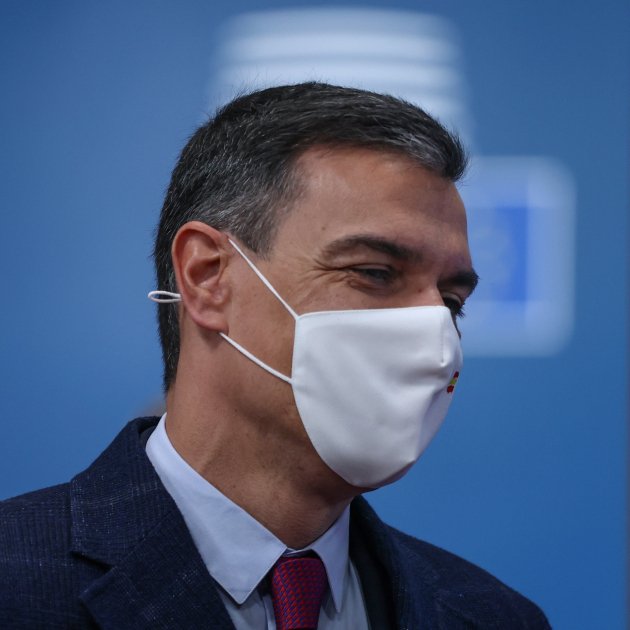It was the first time Pedro Sánchez had faced reporters' questions since the pardons of the Catalan prisoners were granted. And the Spanish prime minister, in the face of the Spanish right's judicial offensive - with court appeals against the pardons already presented - has once again defended the clemency measure in his own way. "What was useful in the past was punishment and now it is forgiveness," said the Socialist leader. He highlighted how the pro-independence leaders had spent "44 months in prison" and that now it was time to open a new phase of dialogue and understanding. Of pacification in Catalonia, to sum it up.
In an appearance from Brussels, after this Friday's meeting of the European Council, the Spanish prime minister said that "what we politicians and governments must do is to build coexistence and unite our society." And in this construction of coexistence, he added, "there are times when punishment is useful and others when what is useful is forgiveness." And now is "the time of forgiveness." He explained that no other EU leader had asked him about the pardons measure, a sign of the "profound respect" of European leaders for Spanish democracy.
"Spanish society and Catalan society want to turn the page on a bad past, on the split that this whole process meant", said Pedro Sánchez, who focused on the price that has already been paid: "Let's not forget that these nine people who have been released have spent 44 months in prison”. He also noted how it was "civil society" itself which proposed the pardon, from individuals to unions and business people.
The Spanish president played down the statements made by the political prisoners themselves as they left the prisons on Wednesday. "Nothing to say about what they brought up," he said. He claimed that Spanish democracy had demonstrated its "strength" in granting the pardons and that "the strength of democracy is its capacity for integration and the resolution of its conflicts." That is why he wanted to deliver a message of "calm, tranquility confidence" to all Spanish citizens.
Meeting with Aragonès
Asked about next Tuesday's meeting with Catalan president Pere Aragonès, the Spanish PM said that they have "a lot to talk and dialogue about" and "a lot of differences to resolve." He admitted that he was aware of the "proclamations and demands" of the independence movement, and he recalled that "the only limit is respect for democratic legality and the constitutional pact." He has once again brought up the "agenda for re-encounter" that he gave to the then-president Quim Torra early last year, which compiled many claims made by the Catalan government the past. Almost everything except for a self-determination referendum.
Spanish LGBTI bill, on Tuesday
Meanwhile, and after the controversial homophobic law passed in Hungary, Pedro Sánchez made use of his press appearance to announce that next Tuesday the cabinet will approve Spain's proposed new LGBTI law. This is a general bill, negotiated with coalition partners Unidas Podemos, which is expected to include gender recognition by self-determination, which had been included in the proposed trans law, considered but rejected by Congress in May.
